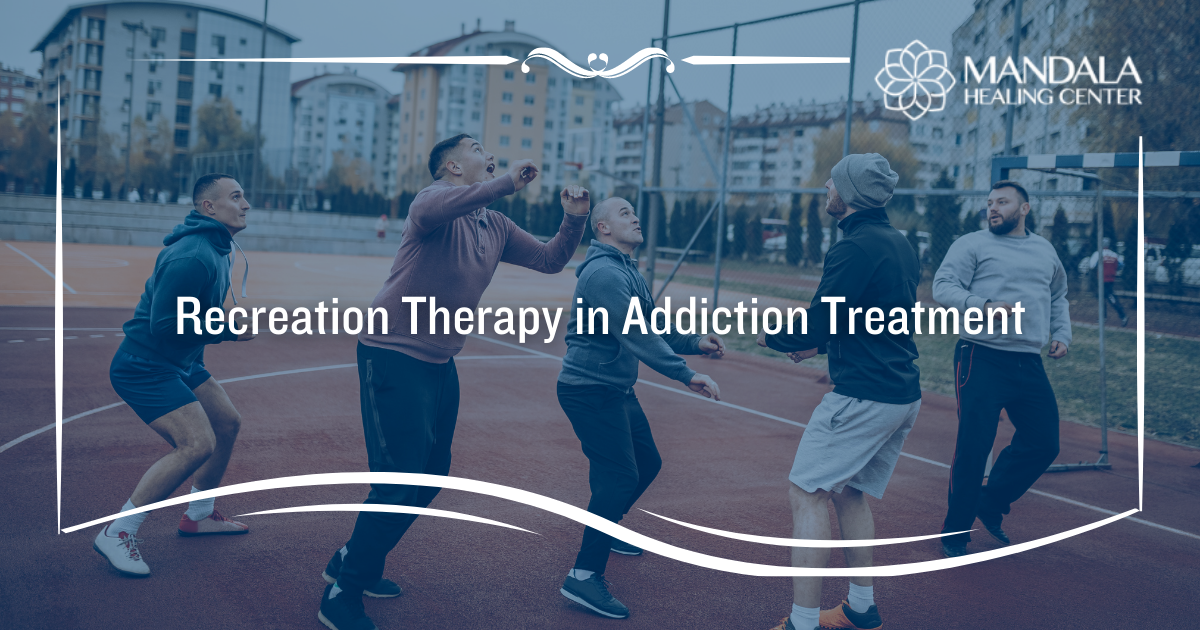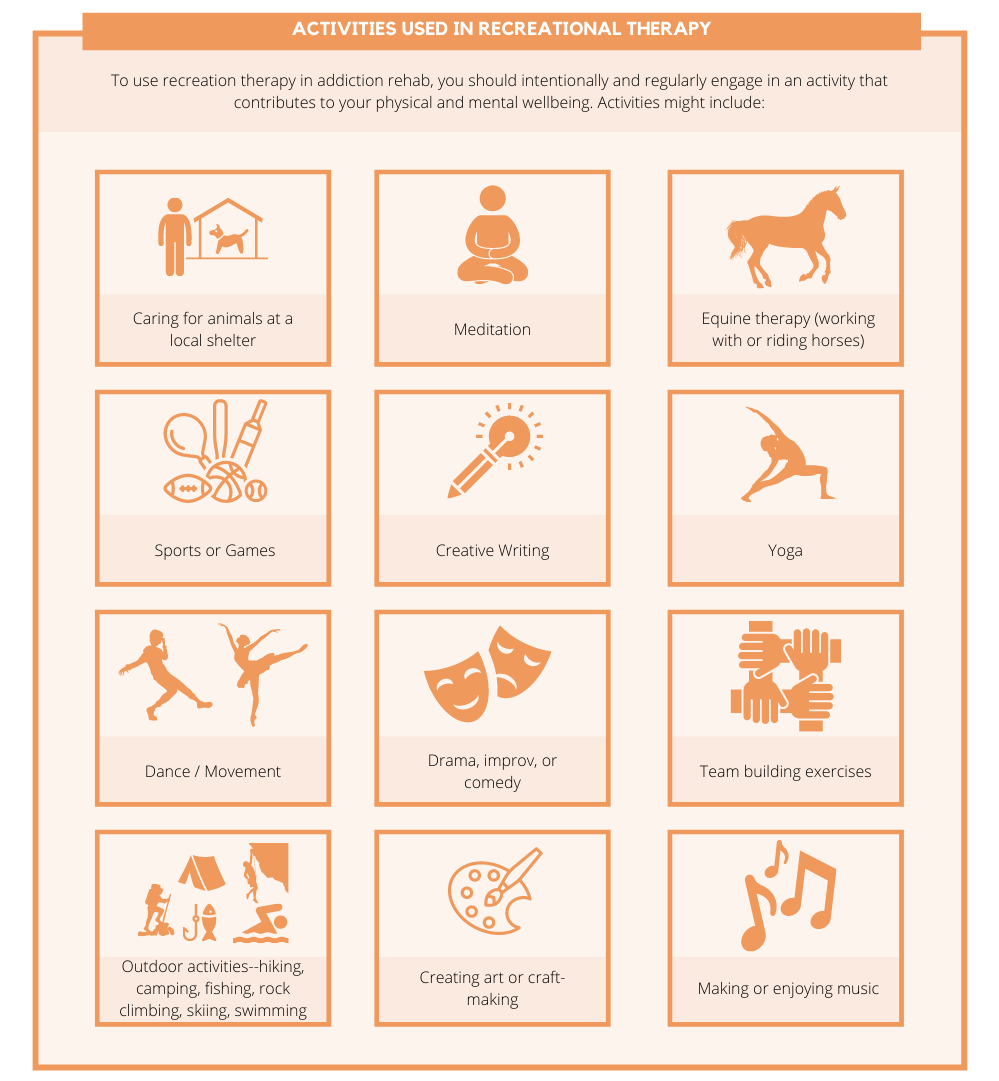Addiction affects millions of people in the United States and affects every aspect of their health, social lives, and communities. As we begin to understand the issue of addiction more fully, it has become clear that simply treating a person’s body is not enough. While detox is important, it is only the first step towards lifelong recovery.
People use many tools in the fight against addiction. In addition to evidence-based treatments like medication and talk therapy, research has shown that incorporating holistic therapies can help heal a person’s body, mind, and spirit, and offers a better chance at maintaining their sobriety–and overall wellbeing–for life.
One form of holistic therapy called recreation therapy is widely used in addiction treatment. Recreation therapy involves intentionally incorporating beneficial activities into someone’s addiction treatment plan. It is a safe, effective, and nurturing form of therapy for someone’s mind and body. For people living with addiction or mental health conditions, using recreation therapy alongside evidence-based treatments offers the chance to heal and avoid relapse.
What is Recreation Therapy?
While the idea of recreation therapy has existed for over 100 years, it has gained popularity in the last three decades.[1] As we have begun to understand how addiction affects people, we have developed better treatments for it. One significant change is that we understand the importance of learning skills to manage difficult emotions and enjoy life without returning to substance use. Recreation therapy helps accomplish this in several ways when used in addiction treatment.
Recreation therapy involves incorporating enjoyable and satisfying recreational activities into a person’s treatment plan. These could be outdoor activities, caring for animals, or various hobbies. Recreation therapy can be adapted for anybody and can be offered in an almost unlimited variety of settings.
One of the most important goals of using recreation therapy in addiction treatment is to allow people to regain their confidence, self-esteem, and connection to themselves and others. Because of this broad goal, recreation therapy will look different for everyone who engages in it. For some, it might be intense physical activity. For others, it might be quiet reflection or prolific creativity. There is no comprehensive definition of what recreation therapy must be. This is what makes it so enriching and adaptable.
How to Use Recreation Therapy in Addiction Treatment
To use recreation therapy in addiction rehab, you should intentionally and regularly engage in an activity that contributes to your physical and mental wellbeing. Activities might include:
- Caring for animals at a local shelter
- Meditation
- Equine therapy (working with or riding horses)
- Sports or games
- Creative writing
- Yoga
- Dance or movement
- Drama, improv, or comedy
- Team building exercises
- Outdoor activities–hiking, camping, fishing, rock climbing, skiing, swimming
- Creating art or craft-making
- Making or enjoying music
Some people return to an activity they used to enjoy, and some decide to try something brand new to them. The goal of recreation therapy is not to find something that you excel at. Instead, the goal is to find an activity that enriches your life, helps you to connect with others, and allows you to have a break from the rigorous, emotional work of addiction treatment.
Generally, recreation therapy means finding an activity that supports sobriety and wellbeing. Many people in recovery benefit from incorporating enjoyable, fulfilling activities into their addiction treatment plan.
Benefits of Recreation Therapy in Rehab
There are many benefits to using recreation therapy in addiction treatment. First, many of the activities commonly used as recreation therapy have short and long-term benefits for the body. Outdoor activities and exercises like yoga and dance can strengthen muscles and improve lung function. Exercise can also reduce stress and lower blood pressure, and gentle movement may help reduce some of the physical symptoms of withdrawal.
These activities support mental health, as well. Research has shown that spending time in nature, exercise, and interacting with animals offers numerous mental health benefits.[2] Engaging in a fulfilling, satisfying activity can increase self-esteem, and it helps to increase the appeal of living life without using substances. People who participate in recreation therapy are less likely to isolate, more likely to develop trust in others, and report lower levels of stress and depression.
One of the most important parts of addiction treatment is learning how to manage challenges and difficult emotions without using substances. Addiction is never cured; you have to learn how to manage it for life. Recreation therapy can help you find a new purpose for your life in recovery and help you make meaningful connections with others on your journey.
Learn More About Holistic Addiction Treatment at the Mandala Healing Center
If you or someone you love need compassionate, holistic addiction treatment, reach out to the staff at the Mandala Healing Center. We work to empower people at every stage of recovery. Our programs are designed to care for your mind, body, and spirit while giving you the tools you need to overcome addiction. If you are ready to take the first step, we will walk the rest of the way with you. Call us today to get started.
References:













